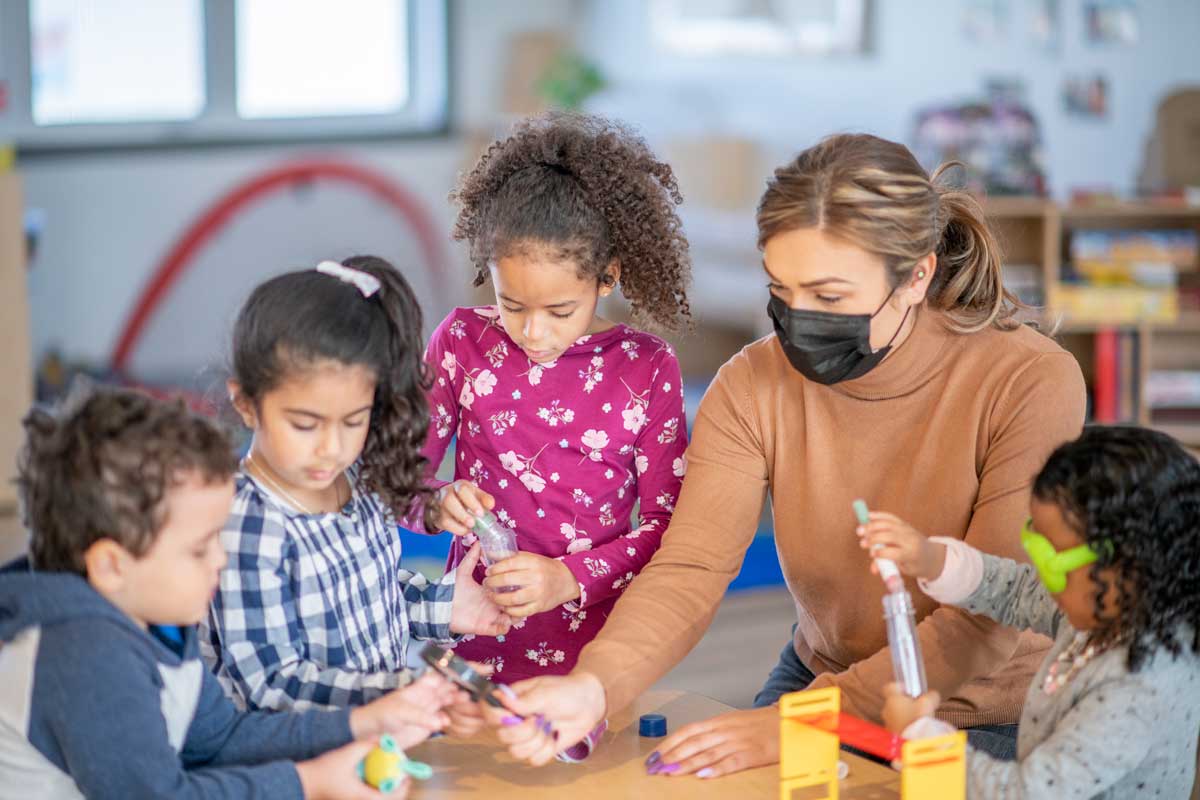
In March 2020, the COVID-19 pandemic led Massachusetts (along with many other states) to close all forms of child care, except emergency care. Many parents found themselves working from home and caring for their young children at the same time, muddling through as best they could until child care reopened in summer 2020.
When child care became available again, what did parents do—especially given their fears and lack of confidence in the child care system? New health and safety guidelines, including smaller group sizes and other limitations, raised costs and made fewer slots available. Many child care centers and family child care homes closed, and fewer educators were available to care for and educate young children.
Thanks to support from WCW’s Harold Benenson Memorial Research Fund, I explored this “new normal” of child care by interviewing 25 Massachusetts families with children under the age of five. I looked at how these families were accessing child care during the pandemic, their experiences and perceptions of the multiple dimensions of child care, and the implications for parents’ daily lives as well as their employment, economic mobility, work hours, and advancement.
One mother said it wasn’t feasible to be 100% parent and 100% worker at the same time, and that she felt she wasn’t doing anything well.
For all the parents I spoke to, being home with their children from March until July 2020 (or later) was tough. The majority tried to work while caring for their children, working during naps, before children woke, or long after bedtime. One mother said it wasn’t feasible to be 100% parent and 100% worker at the same time, and that she felt she wasn’t doing anything well. Another said she was in survival mode. Another said that she sacrificed her physical and emotional health.
Despite these challenges, it was surprising to me to learn that the families in this study sent their children back to care as soon as it reopened. I expected that fears about COVID and issues of affordability and accessibility might cause families to delay their return. But many felt their children had to go back to what they had known. One mother said her child needed to return because of his mental health. Another parent felt torn about returning and nervous about COVID, but believed the potential exposure was worth it because her child needed an outlet, socially and mentally. Another felt her daughter needed the normalcy and education that she couldn’t get with a baby brother at home.
The first few months of the pandemic brought into the spotlight how hard—near impossible—it was to both work from home and care for young children. The parents in this study told me about their struggles in trying to do both. Going forward, we need a new work culture that is more flexible. Businesses need to ease output expectations, incorporate more paid family leave programs, and implement innovative accommodations for their employees with young children.
When child care programs reopened, most of the families I spoke to went back to the child care they used before the pandemic, even though it was often more than they could afford and led them to use a patchwork of care arrangements to meet their needs.
When child care programs reopened, most of the families I spoke to went back to the child care they used before the pandemic, even though it was often more than they could afford and led them to use a patchwork of care arrangements to meet their needs. Child care needs to be affordable, accessible, and meet the needs of working families. We need to advocate for federal and state funding specifically for child care. We also need to tend to the mental toll the pandemic has taken on families’ lives. Exhausted parents and their children need to be provided with mental, emotional, and trauma-related support. Parents can only parent when they themselves are provided with the care they need.
Wendy Wagner Robeson, Ed.D., is a senior research scientist in the Work, Families, & Children Research Group at the Wellesley Centers for Women. Her work is focused on child development, early childhood care and education, child care policy, school readiness, literacy, and language.
When you subscribe to the blog, we will send you an e-mail when there are new updates on the site so you wouldn't miss them.
Comments